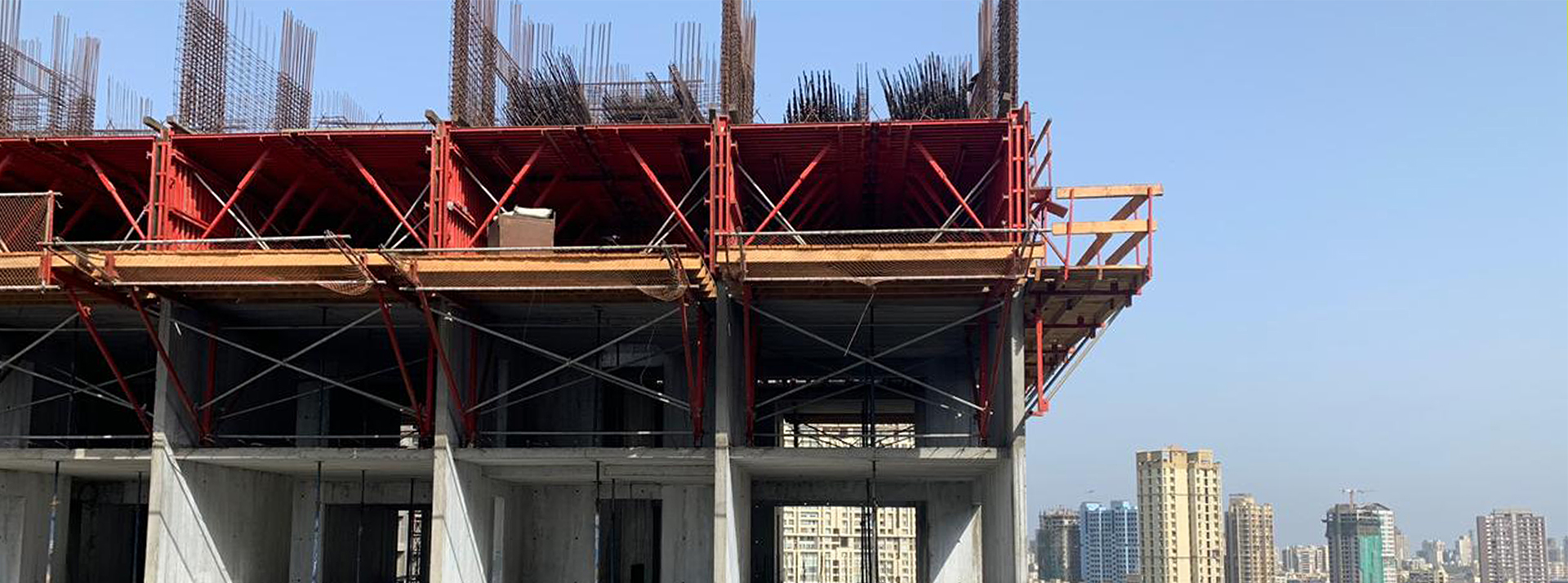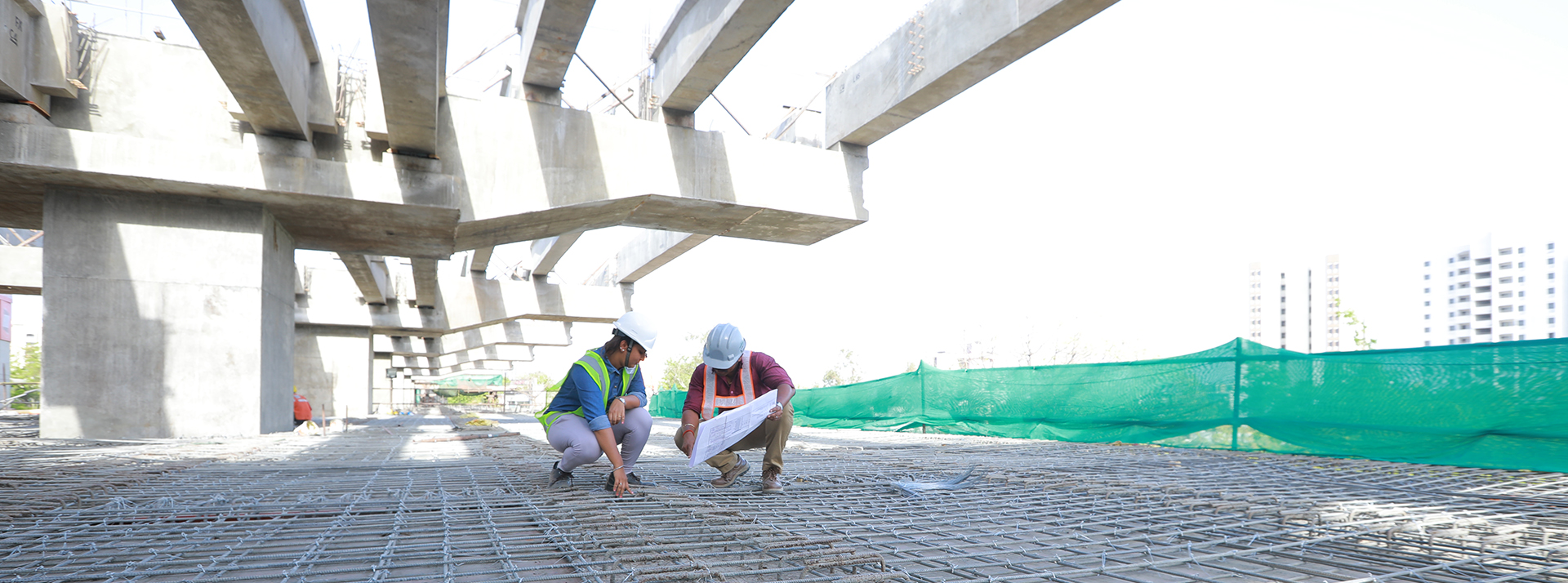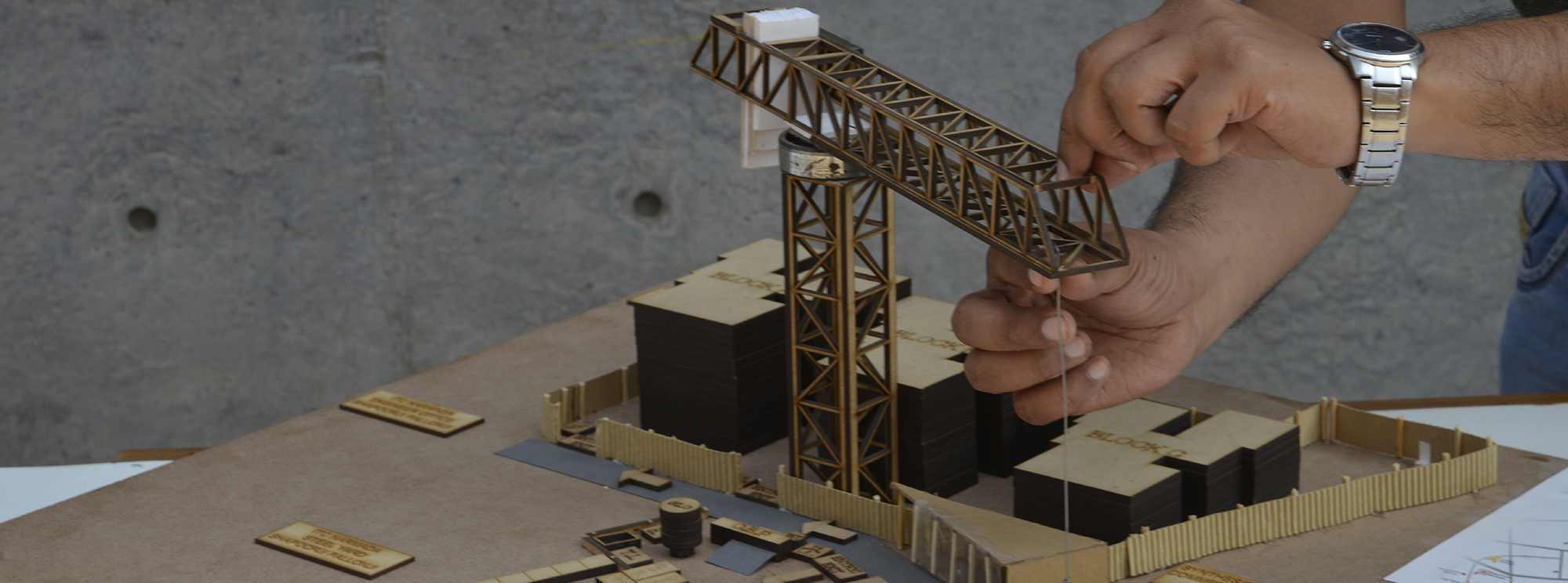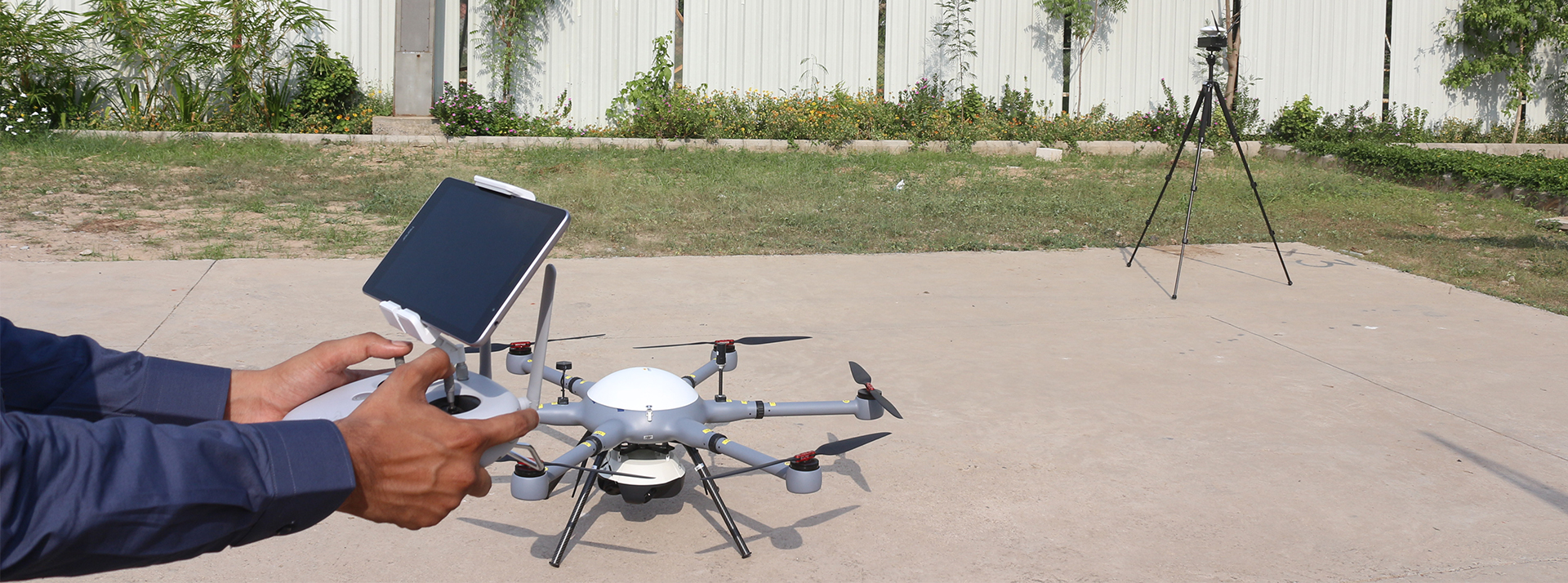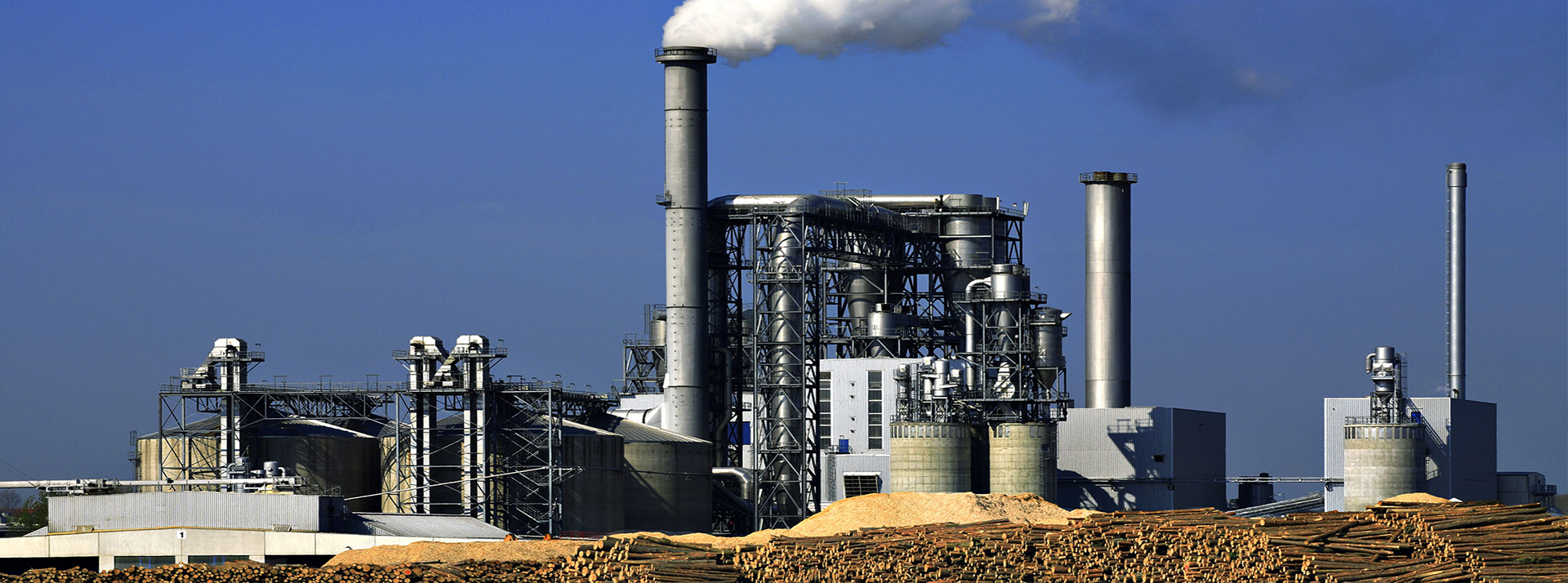Curriculum
Bachelor's in Civil Engineering (BCE) Curriculum (Subject to change)
SEMESTERS –I & II
CEPT FOUNDATION PROGRAM (CFP):
In their first year, students go through a foundation program, which is a unique feature of undergrad education, where all first-year students from Architecture, Design, Planning, and Technology study together for one complete year. This allows fresh minds to think beyond boundaries and allows them to learn across disciplines. CFP focuses on the basics and builds on the abilities to work with freehand and technical drawing, understanding, and representing spaces in perspective, digital representation, surveying and mapping, and material testing. The CFP introduces students to working with different materials in workshops, from wood and metals to 3D printing. The CFP also emphasizes two-semester training in building communication skills through reading, writing, and comprehension workshops, thereby gearing up the students of CEPT University for professional practices.
SEMESTER –III
1.SOLID MECHANICS
The course aims to teach the importance of studying the strength of materials with respect to civil engineering analysis and design. It introduces the students to the concepts of engineering mechanics of materials and the behavior of the solid objects i.e., deformable bodies in terms of stress and strain when subjected to external loads.
Learning Outcome: After completing the course, the student will be able to analyze different force systems and calculate stresses and strains in different beams and trusses.
2.APPLIED MATHS
The course focuses on building numerical skills that will be used during the entire course of study. The course covers calculus and its applications, matrices, linear programming, probability and statistics, introduction to three-dimensional geometry, and graph theory.
Learning Outcome: After completing the course, the student will be able to demonstrate the understanding and application of probability, geometry, and linear programming in civil engineering domains.
SEMESTER –IV
3. STRUCTURAL ANALYSISThe course introduces students to the concept of overall structural stability, the theory of structural analysis, and methods of structural analysis. It also involves rigorous calculus and mechanics of solids to compute the structure's response in terms of internal forces, stresses, support reactions, and deflections. The results of the analysis will define the structure's suitability for use.
Learning Outcome: After completing the course, the student will be able to analyse and draw shear force and bending moment diagrams for beams and calculate stresses in columns, cables and arches.
4.CONSTRUCTION TECHNOLOGY
The course introduces the students to the elements of a building. It starts with discussions on types of buildings and structures, site investigations, types of foundations, excavation planning and techniques, building components, their types and associated terminology-roof, floor, doors, windows, staircases, and introduction to tools and equipment for construction.
Learning Outcome: After completing the course, the student will be to demonstrate knowledge of various components of buildings and their functions and methods of construction.
SEMESTER –V
5.ENVIRONMENTAL ENGINEERING
The course provides students with an understanding of the significant aspects of the Environment and related acceptable standards and management. The details of air and noise pollution and management, solid waste management, and water and wastewater treatment processes are covered.
Learning Outcome: After completing the course, the student will be able to define various parameters to evaluate environmental pollution and demonstrate knowledge of various technologies for the prevention of pollution and treatment of waste.
6.FLUID MECHANICS
The course introduces students to fluid mechanics principles and their application to civil engineering domains. The course covers properties of fluids, fluid statics, mechanics, and dynamics, including the measurement of pressure, velocity, and flows in fluid systems.
Learning Outcome: After completing the course, the student will be able to demonstrate and explain hydraulic principles, including Pascal's law, Bernoulli’s Theorem, and head loss through hydraulic systems to calculate pressure, velocity, and flow in open channels and pipes.
SEMESTER –VI
7.GEOTECHNICAL ENGINEERING
The concepts of geotechnical engineering, including soil mechanics (types of soil and their behaviour under different exposure conditions), in-situ testing, and field and laboratory investigations of soil and foundation design, are discussed in this course.
Learning Outcome: After completing the course, the student will be able to identify different types of soil based on its engineering properties and will be able to experimentally measure these properties in the laboratory.
8.TRANSPORTATION ENGINEERING
This course imparts basic concepts of Highway and Transportation Engineering. Topics covered include the road and other transport systems (surface, water, air), geometric design of roads, road pavements, urban public transport system, traffic survey methods and forecasting, traffic control devices for intersections and mid-blocks, pedestrian and cycling facilities, traffic signal designing, road safety engineering, and accident investigation.
Learning Outcome: After completing the course, the student will be able to define basic terminologies of highway, traffic, bridge railway, ports, airport, and tunnel engineering and demonstrate primary knowledge of planning and design process along with design criteria for transport facilities.
SEMESTER – VII & VIII
9.REINFORCED CONCRETE STRUCTURES: CONSTRUCTION AND DESIGN
This course enables students to design a reinforced concrete structure as per the Limit State Design Method of the Indian Standard code of Practice (IS 456:2000). Loads and load transfer path, interpretation of forces (shear, bending, axial force) subjected to various elements of a structure and subsequently, their analysis, design and detailing as per standard norms is being dealt with. Students are also acquainted with the construction process of Reinforced Concrete structures through a site visit, thus facilitating their understanding regarding the implementation of the design practice.
Learning Outcome: After completing the course, the student will be able to analyze, design and detail primary components of RC structure subjected to gravity loads as per the Indian standard code of Practice (flexure and shear)
10.STEEL STRUCTURES: CONSTRUCTION AND DESIGN
This course teaches students the fundamental principles of analyzing, designing, detailing, and constructing steel structures. The design is introduced as per the Limit State Design Method and the Indian Standard code of Practice (IS 800:2007). The course covers steel metallurgy, properties of structural steel, design of tension members, compression members, flexural members – laterally supported and laterally unsupported, column, column base, and connections between these elements – bolted and welded.
Learning Outcome: After completing the course, the student will be able to analyze and design different components and connections of steel structures as per the Indian standard code of Practice.
11.BUILDING MATERIALS AND METHODS FOR ENERGY EFFICIENCY
The objective of this course is to sensitize the students to the energy scenario of buildings and how building construction and materials can significantly change the energy requirement for air conditioning in the indoor Environment. The students learn about the fundamental concepts of heat transfer, which are necessary to understand the interaction of the building envelope with the interior and exterior environments.
Learning Outcome: After completing the course, the student will be able to estimate the U-value of building wall assemblies/components, the thermal transmittance value of building envelope and ventilation requirements and apply building physics concepts in building construction to reduce the energy requirement.
12.BUILDING SERVICES
This course provides an understanding of services such as Mechanical (HVAC), Electric, Plumbing, Fire Protection, and Building Automation that are essential for the effective performance of a building or a facility. The principles of design, load calculations, capacity determination, and standard engineering practices are discussed through various case studies.
Learning Outcome: After completing the course, the student will be able to define terminologies and underlying principles and engineering practices for the design of service networks. The student will also be able to demonstrate primary knowledge of the design of appropriate MEPF services for a given project
SEMESTER – IX & X
13.CONSTRUCTION PROJECT MANAGEMENT
This course covers three main aspects of project management: Planning, Organizing, and Controlling. The course will impart knowledge about project management theories, tools, and techniques as applied construction projects to achieve completion with time, cost, quality, and safety objectives.
Learning Outcome: After completing the course, the student will be able to i) develop project baselines: scope, cost, and time; ii)Identify, analyze, and mitigate risks; and iii) demonstrate the application of project planning, monitoring, and controlling tools
14.ADVANCED CONSTRUCTION TECHNOLOGIES
The course is offered to introduce advanced construction processes, cutting-edge technologies incorporating mechanization, and tools currently involved in constructing projects through case studies. The course plan is divided into three modules - High-rise construction, Bridges and Metro construction, and Road construction.
Learning Outcome: After completing the course, the student will be able to i) demonstrate an understanding of technological requirements of the construction of projects and associated construction processes and the implementation of modern engineering tools in construction processes.
15.DIGITAL TECHNOLOGIES
The course introduces students to new digital technologies wherein they work on an individual building/infrastructure project and understand the concepts of virtual design and construction processes. Digital technologies like Building Information Modelling (BIM) are explored for practical solutions to engineering tasks through virtual design and construction and exploring collaboration with other professionals and users for presentation and information exchange.
Learning Outcome: After completing the course, the student will be able to use digital tools in practical solutions of engineering tasks - collaborate with other professionals and users with the support of digital technology for presentation and information exchange with the use of Virtual Design and Construction (VDC) for solving project-based tasks.
16.QUANTITATIVE ANALYSIS TECHNIQUES
The students in this course are introduced to quantitative methods for data analysis. The course introduces measures of central tendency, dispersion, and probability. Then, it delves into inferential statistics and introduces various tests. Simple Linear Regression is also covered during the latter part of the course.
Learning Outcome: After completing the course, the student will be able to work with data for statistical analysis, including measures of central tendency and dispersions, plotting data, drawing inferences, and basic multivariate data analysis.
PROFESSIONAL TRAINING
After successful completion of 3rd year of the program, the students undertake professional training in one of the remaining semesters. This training can be taken in any national or international organization, on-site, or in a consultant's office. Through this approach, the abilities for knowledge creation and attitude of lifelong learning are inculcated in the students, giving them the freedom to chart their professional path.
DIRECTED RESEARCH PROJECT (DRP)
DRP stands for a directed research project that is anchored by an instructor/guide that a student chooses, typically in the pre-final/final semester of studies. These projects are a part of a larger ongoing or proposed research project of the guide. The students, through these projects, learn to develop a research framework and undertake research independently.
STUDIOS
Studio-based learning is the mainstay of teaching and learning at CEPT. Small groups of 10-12 students engage with life-like problems under the guidance of one or two tutors. Studio units focus on building students' abilities, exposure to concepts and ideas, and developing their individuality and voice. L1: Level 1 students undergo courses to develop basic observational, drawing, making, problem-solving, and communication skills. The students acquire these skills at the CFP. L2: Level 2 students undertake L2 studio units that build students' abilities around: 1) Analyzing and designing, 2) Constructing and specifying, 3) Planning and organizing, and Building arguments and rationales. L3: Level 3 students undertake L3 studio units focused on thematic expertise and individual problem-solving abilities to tackle complex engineering problems and address social, environmental, and technical concerns.
Studios are offered in Structures, Infrastructure, Building services, Innovative materials, Construction Technology/ Management, and Geotechnical engineering.
A few offered in the past are listed below:
Structures
- Cantilevered Structures-Form, Material, Design, and Construction
- Deployable Structures - Concepts and Explorations
- Designing spaces in Reinforced Concrete
- Designing Spaces in Steel/ Form and Structure: Steel
- Explorations in Wood: Material, Form, and Construction
- Exploring Pedestrian Bridges
- Structural Expressions in Masonry
Infrastructure
- Planning and Design of Road Infrastructure
- Engineering Urban Water Systems
- Urban Road Intersection Design and Analysis
Building Services
- MEPF: Services, Design, and Coordination
- Plumbing Design Studio
- Network Design for Water Systems
Materials
- Concrete: exploring its versatility
- Engineering Sustainability: Impact of Design, Materials, and Technologies
- FaBricks: Customizing Bricks
- Waste Management Through Application in Construction
Construction Technology/ Management
- Exploring the Indigenous Construction Techniques and Reinterpreting them in the Modern Context
- Project Procurement Management
- Construction Engineering for Mass housing projects
- Industry 4.0 in Construction technology
Geotechnical Engineering
- Geotechnical Parameters: Influencing Foundation Systems
ELECTIVES AND SUMMER WINTER SCHOOLS (SWS)
* Subject to change every semester.
CEPT University cherishes its students' individual interests and abilities by allowing them to chart their learning paths by taking electives and SWS courses across the University. The essence of short-duration SWS courses lies in experimentation, diversity, innovation, and intense and focused teaching and learning.
- Programming with Excel and R Studio
- Cartography and Mapping
- Introduction to BIM
- Applied Statistics with Python and Excel
- Real Estate and Valuation
- Environment Impact Assessment for Infrastructure Projects
- Perspectives of Urban Infrastructure
- Exploring Nature-based Infrastructure Solutions for Sustainable Urban Development
- Smart Cities: Role of Engineering in Urban Transformation
- Data Science and Machine Learning for Everyone
- Construction Supply Chain Management through Case-Studies
- Basics of Finance
- Vernacular Structures
- Introduction to Automation and Internet of Things (IoT)
- Air Pollution: Sources and Control Technologies
- Python for Statistics
- Adaptive Structures: Exploration of Kinetic Roof Technologies
- Water & Wastewater Analysis

